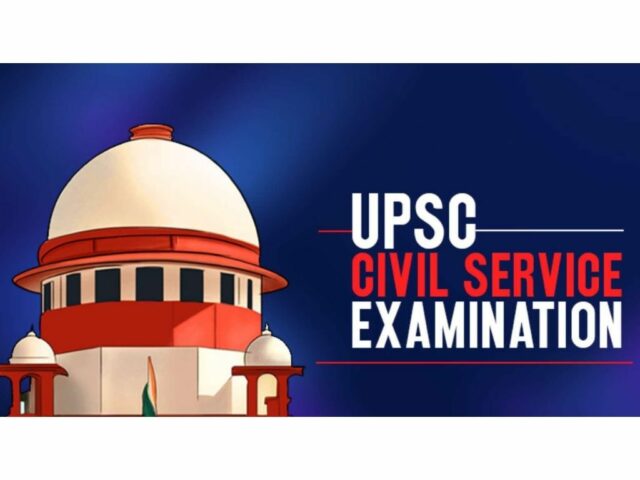FlippED is an ED Original style wherein two bloggers come together to share their opposing or orthogonal perspectives on an interesting subject.
We’re back with FlippED!
UPSC Exam is the Union Public Service Commission Exam where there are 23 different civil services, most notably, Indian Administrative Services (IAS), Indian Police Services (IPS), Indian Revenue Services (IRS) and Indian Foreign Services (IFS).

Now the question is, should one take the exam after college?
“THE PERKS ARE TOTALLY WORTH THE IMMEDIATE JOINING.”
– BLOGGER SHOUVONIK’S OPINION
Pros And Perks
The starting salary of an IAS officer is ₹50,000, which goes up to ₹1,50,000 depending on years of service and for the apex scale and cabinet secretary grade, the salary is ₹2,50,000.
Besides this salary, one gets allocated bungalows or residential units depending on the ranks, pay scale and seniority. They get bodyguards, subsidised or free gas, electricity, water and phone connections.
Besides that, they get transportation and if it is in rural areas, an ambassador is allocated while for senior officers, Toyota Fortuner or Innova is provided.
The officers enjoy subsidised accommodation in government guest houses or bungalows during their official or unofficial trips. When in the capital, they can take advantage of living at their State Bhawans.
Does Experience Matter?
The job scope of an IAS officer after the UPSC Exam is inclusive of but not limited to
- collect revenue and function as court officials in matters of revenue and crime (for the revenue courts and criminal courts of executive magistrates),
- to maintain law and order,
- to implement union and state government policies at the grass-roots level when posted to field positions i.e. as sub-divisional magistrates,
- additional district magistrates,
- district magistrates and divisional commissioners, and
- to act as an agent of the government in the field, i.e. to act as an intermediary between the public and the government.
Now, if you dedicate your time evenly with academics and studies for UPSC, it is attainable. It is not easy, and neither is it supposed to be.
And even if not for joining, this exam tests your general knowledge and current affairs more than anything. Therefore, testing oneself and pushing one’s limits with this exam is always a good choice. If one gets in, their life is full of perks and respect, and if not, they end up being knowledgeable.
Read More: A Lot Of Sweat And Shikanji: My Experience Writing The Civil Services Prelims Examination By UPSC
“sO IT’S VERY IMPORTANT THAT ONE DREAMS OF SITTING FOR THE EXAM FOR THE RIGHT REASONS BECAUSE IT’S ONLY THE FIRST STEP OF A VERY LONG JOURNEY.”
– BLOGGER NANDINI’S OPINION
Do It For The Right Reasons
Once an aspirant does clear out the UPSC exam, while the perks and pros are very attractive, the responsibility and workload easily outweigh them. Moreover, all the four jobs offered after clearing the exam are together called All India Services. The name itself is proof of how the work here is done to aid the country and its purposes.
Needless to say, the primary and minimum requirement to be an All India Service officer is patriotism and the willingness to put the country and its people before your own self. So if one sits for the exam just keeping what they will get in mind but not what they have to offer as well, one can never do true justice to their role.
Hence, before going for the exam, it’s very necessary to evaluate your investment in the purpose and realise you don’t need to take the exam if your intentions are misplaced.
UPSC Is Not The Ultimate Dream
Out of the lakhs who sit for the UPSC exam, only 0.2 percent get through. And a large portion of the population who sit for the exams don’t do it because they want to, but because they have been forced or pressured to, by their families.
Instances of suicide and depression of aspirants after failing in their attempts at the exam are not very rare as well. So while the incentives of taking and passing the exam might be great, it’s very important to keep in mind that UPSC is not the end of the world.
No exam can be a true testament of one’s capabilities and skills, let alone the exam of UPSC. Also, it’s not news that following one’s true passion and dream is the best path one can follow and that everyone lives life at their own pace and cannot and should not be compared to others.
Hence, if taking the exam proves to be detrimental to one’s mental and physical health, no one should be coerced into sitting for it.
The bottom line is, no third person, not even your family or us the bloggers of ED Times, should be telling you if you should be taking the UPSC exam after college. That decision should be yours and yours only.
Image Credits: Google Images
Sources: DNA India, The Better India, UPSC Pathshala
Find the Blogger: @NandiniMazumde5
The post is tagged under: UPSC, government, All India Services, IFS, IAS, IPS, exams, salary, perks, mental health, parameter, Indian Administrative Services, Indian Police Services, Indian Revenue Services, IRS, Indian Foreign Services, debate, argument, dream, passion, career, life, revenue, crime, law, order, union, state, government policies, field positions, district magistrates, divisional commissioners, responsibility